Ultimate Guide to Hostels For Solo Female Travelers 35+
*As an Amazon Associate and member of other affiliate programs, we may earn a commission for purchases made through links on this page.
I’ve stayed in enough hostels over the last twenty years that it’s about time that I share all my knowledge and experience in a guide to hostels!
Starting in my early 20s, like most other young budget travelers, I stayed at hostels to save money while traveling. In 2017 (in my mid-30s), I lived in hostels in New Zealand for three months at $23 a day!
On a trip overseas in 2019, I stayed at hostels in Latvia, Estonia, Finland, and England, which helped me travel for three weeks instead of just one.
I was coming up on 40 years old during that trip to Europe. This is an important point to make because your age doesn’t determine whether or not you should (or can) stay at hostels. It might affect how you stay at hostels and what type you choose, though.
I’ll go into that and more in this guide to hostels for solo female travelers thirty-five years old and up. Keep reading!
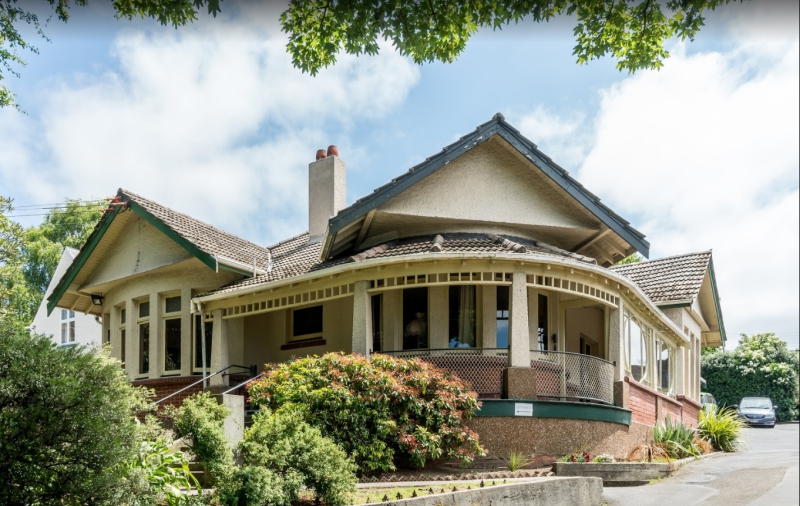
Guide to Hostels: Basics + FAQs
What is a Hostel?
Hostels are short-term shared accommodations with a social, community-based, and sustainable atmosphere. Guests rent beds by the night, typically bunk beds in dorm-style rooms, but some hostels have private rooms with full-size beds.
They are most popular in Asia and Europe and least popular in North America. In fact, many people don’t realize that hostels exist in the United States at all!
I’ve stayed at a handful of hostels in the US, including Apple Hostels Philadelphia and Hostelling International San Francisco.
Some popular hostel chains around the world include Hostelling International, St Christopher’s Inns, Generator, Tribe Theory, and YHA. Hostels can also be privately owned and operated. I had a very poor experience at a private hostel in New Zealand, so just be wary of the ones you choose to stay at.

FAQs About Hostels
Aside from “what are hostels?” here are the most frequently asked questions about hostels.
Myths About Hostels
1. They are dirty, loud, and only for young kids looking to party. I think this is rarely the case anymore.
2. They are cheap. Not in terms of affordability, but instead, they have flimsy furniture, ancient heating systems, and other things along those lines. The truth is, some hostels are in old buildings with the bare minimum for furniture and amenities, but more hostels have state-of-the-art equipment, plush furniture, and burst at the seams with amenities these days.
3. Only gap year backpackers stay at hostels. Clearly, that’s not the case since I am now 40 years old and plan to continue staying at hostels. Plus, I have met many people in their 50s, 60s, and even 70s at hostels.
Reasons to Stay at Hostels vs. Hotels
1. Save Money + Travel Longer – Hostels cost half the price of hotels – or even less – allowing you to spend more time in the destinations you visit within the travel budget you set for yourself.
2. Travel Sustainably – Fewer resources are used by the collective community at hostels than by individuals at hotels. For instance, lighting a room shared by six people is just one light compared to six lights in separate rooms. Less electricity is used, and fewer products (lamps, light bulbs) are needed.
3. Socialize with Other Travelers (of all ages) – Hostel community spaces are a great way to meet people and start conversations. You never know where sharing a table with another guest over breakfast might lead you.
Downsides of Staying at a Hostel vs. Hotel
1. Less Privacy – Unless you stay in a private room, you share your space with others in almost all areas of the hostel. Many hostels provide (or are upgrading bunks with) privacy curtains, which provide some personal space.
2. Bad News For Light Sleepers – You will encounter people who snore or talk in their sleep. Those (without etiquette) who come back late at night or frequently and loudly get up in the middle of the night.
3. Theft – There is a greater chance of your belongings being stolen by another guest in shared spaces. Do your best to lock your belongings in a locker or inside your luggage. Always pack a couple of combination locks when you stay at hostels. See what else I recommend to pack below.
4. Theft of Food – There is usually no way to lock your food up in community kitchens, unfortunately, and food is usually not allowed in dorms. I suggest not keeping a lot of food on hand, so only buying what you will eat in a couple of days.
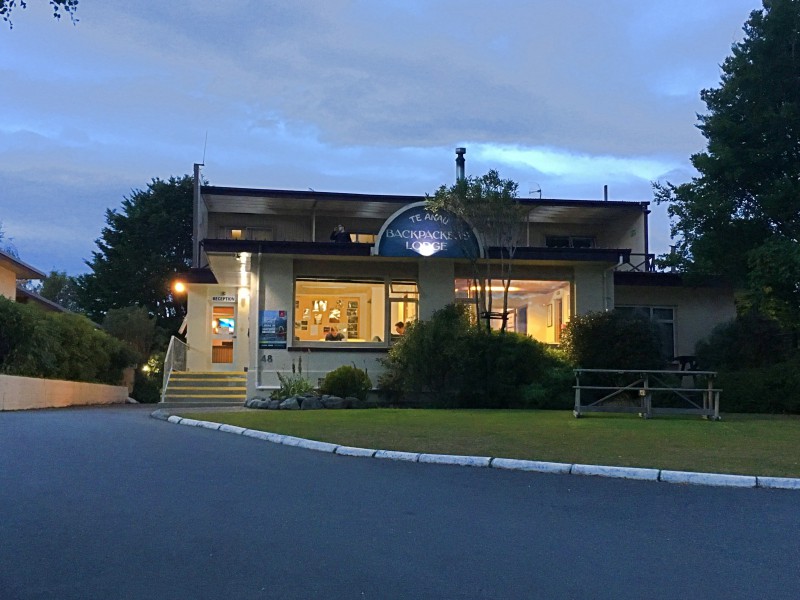
Types of Hostels – What Type Is Best For You?
I have stayed at all of these types of hostels over the years, with different experiences at each. As I get older and as a child-free solo traveler, I gravitate toward budget and boutique hostels.
Sometimes hostels can be hyphenated, such as a budget-party hostel, family-boutique hostel, or the infamous working-party hostel in Blenheim, New Zealand, that I hope is shut down forever.
Read through descriptions and guest reviews (don’t forget to check out guest photos if they exist) to decide what type sounds like your style.
Budget Hostel – Just as the name implies, these hostels provide just the bare necessities to keep costs low. No luxuries such as private rooms, private bathrooms, or a community room stocked with billiards games. These hostels are great for long-term travelers stretching their budget and those who explore their destination for most of the day and just need a place to sleep.
Boutique Hostel – These hostels offer hotel-quality design and amenities but for about half the price. Look for hostels with a cafe, beautiful and trendy design features, and amenities such as workspaces, fast internet, or private room options. You might even find some that have a pool or offer yoga classes. If you are brand new to staying at hostels, a boutique hostel is a perfect compromise between hostel and hotel.
Working Hostel – These are great for working holidays like the one I attempted in New Zealand (if you are between 18-35). You will find these types of hostels quiet pretty much all hours of the day. Guests are either out working during the day or go to bed early to rest up for work the next day. They usually offer long-term stays and will help you find work in the area.
Family-Friendly Hostel – It will usually say in their descriptions if the hostel welcomes families and young children (or children of a certain age, at least). Private rooms will have a double bed and a bunk bed or a similar configuration, but families can reserve entire dorm rooms, too. Use Booking.com to read hostel reviews and descriptions, as this site caters to older guests compared to Hostelworld.com.
Party Hostel – These hostels will have an onsite bar or host local pub crawls. They may offer more co-ed dorms and fewer or no female-only dorms or private rooms. They cater to a younger crowd, but that does not mean older guests can’t stay there if you’re looking for a good time.
Types of Hostel Rooms
Mixed Gender Dorm Room – These are the cheapest option but not every woman will feel comfortable sharing a sleeping space with men.
Female-Only Dorm Room – Sometimes, larger hostels dedicate whole floors to female-only rooms and bathrooms. Some female-only floors have locking doors that only guests staying on that floor have access to. These are priced slightly higher than mixed dorms, but peace of mind is worth the price. You will find female-only rooms at most hostels worldwide.
Private Room – These will be considerably more expensive than dorms but cheaper than a hotel room. Along with privacy, you might even get a private bathroom!
Hostel Packing List
Don’t forget these hostel must-haves!
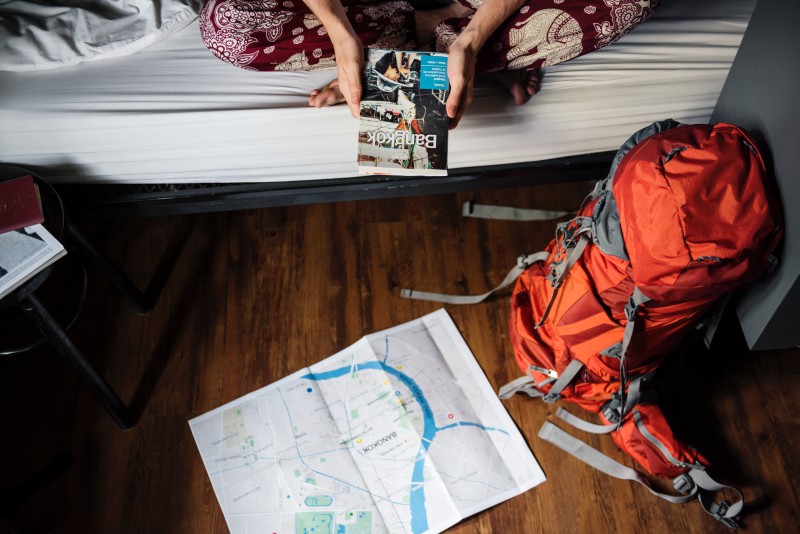
How to Choose a Hostel
First, what kind of experience do you want to have?
Type of Hostel – Based on the answers to most of these questions, you should be able to decide between a budget, boutique, working, family, or party hostel.
Then base your selection on the following:
Location – Choose a centrally located hostel near the most activities and sights you want to do and visit so that you can walk to everything. This helps save lots of time and money on transportation.
Security – I feel safest in hostels that lock entrances by a certain hour every night and have someone at the front desk overnight. Also, dorm rooms with automatic locks, so you don’t have to rely on roommates to remember to lock the door. You might not know if your dorm room locks until you check-in. If it doesn’t and makes you uncomfortable, you should ask to change rooms to one that locks if possible.
To find the best hostel for you, read reviews!
Always read guest reviews and look at any photos submitted by guests. Cross-check reviews on sites like Hostelworld, Booking.com, and Tripadvisor.
Scan reviews and photos for both positives and negatives, including:
GREEN FLAGS
- High ratings for security/safety, staff, and cleanliness
- High total number of reviews
- Reviews from solo female travelers
- Reviews within the past 6-12 months
- Frequent management responses
- Use keywords in a search bar to find specific reviews
RED FLAGS
- A low number of total reviews
- More poor/terrible ratings than excellent/very good ratings
- No or very few reviews by solo travelers
- Unresponsive management
- Multiple mentions of the same safety/security/cleanliness issues
*No matter what the reviews say, always trust your intuition!
COMPARE REVIEWS AT THESE SITES
Female-Only Dorms or Private Rooms – If you are uncomfortable in coed dorms, choose a hostel with female-only or private rooms.
Number of Beds – This will be a personal preference, but whenever possible, I choose rooms with four or fewer beds. Sometimes a six-bed dorm works out well, too. Fewer people mean less mess and less noise.
Amenities – Amenities can vary widely from hostel to hostel. Read descriptions and reviews carefully to learn about the amenities offered and their condition. Here are the ones I look out for:
AMENITIES
MY MUST-HAVES
- locking front doors and (reasonable) curfews
- female-only rooms or even whole floors
- free wifi
- decently stocked kitchen
GREAT IF THEY HAVE IT
- washers and dryers or laundry service
- breakfast
- privacy curtains for beds
- individual outlets and/or bedside lamps
- airport transfers
Best Sites For Booking Hostels
Booking.com – Features hundreds of hostels worldwide and has some of the best descriptions and reviews out there. Most of the time, you can reserve a hostel bed for free and free cancelations! Using the Booking.com app on the go is super handy!
Hostelworld – In addition to hostels, Hostelworld lists bed and breakfasts, budget hotels, apartments, and campsites, so use the filter tool to list just hostels. When booking with Hostelworld, they require a deposit, which will range depending on the location and can be non-flexible (i.e., NON-REFUNDABLE) or standard flexible that will allow you to rebook for an additional fee. Hostelworld also has an app for easy booking on the go.
Agoda – This is a booking platform for nearly every type of accommodation under the sun, plus flights, activities, and ground transportation. Use the filter tool to sort by property type to see only hostels.
Hostelling International – HI is the largest youth hostel network in the world, a not-for-profit organization, and a highly trustworthy brand. Use the HI website to sift through thousands of their affiliated hostels worldwide, including in the US. They offer an annual membership with benefits such as members-only prices, but you don’t have to be a member to stay at an HI hostel.
You can also book directly with the hostel either online (if they have an up-to-date website) or by phone, but I think it’s best to stick to one of the sites above.
Hostel Safety Tips
As a solo female traveler, I believe hostels to be very safe. However, there are things you can do to make yourself feel safer.
- Select a female-only room with the fewest beds.
- Choose the top bunk whenever possible.
- Create a privacy curtain using a towel or scarf if your bed does not have one.
- Organize and pack your belongings every night, so you can leave the room quickly if you ever feel unsafe.
- Speak up to staff if you ever feel unsafe in your room.
The bottom line for staying safe at hostels is to trust your gut, speak up, and follow my tips above for choosing a safe hostel. Read my full thoughts about hostel safety for solo female travelers on The Budget-Minded Traveler.
SAVE THIS POST FOR LATER!
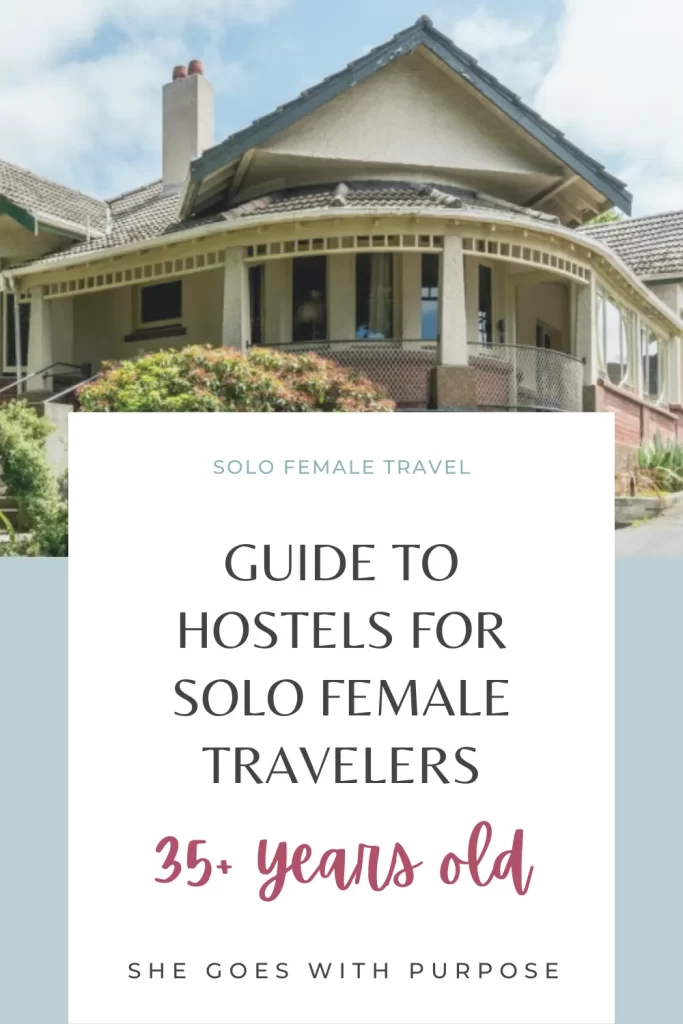
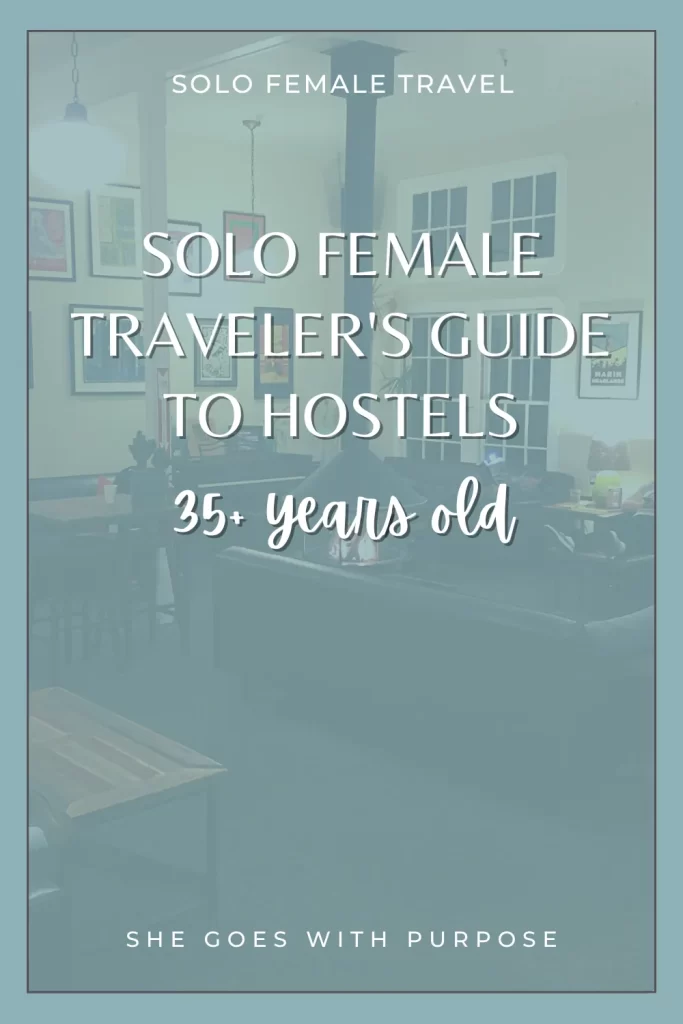
To Whom It May Concern,
Hello. My name is Paula White. How are you? I am trying to find a youth hostel near Hampton Court Palace in London. How can I do that?
Please let me know.
Thank you for your time. 🙏😀
Sincerely,
Paula White
Most accommodation booking sites list hostels, I typically use Booking or Hostelworld. Then use the map feature to find the right hostel for you that is closest to Hampton Court Palace. Best of luck!
Hi. This was a very interesting read. I am going England and was looking for cheaper than Hotel accommodation. I like the idea of women’s only room and yes 4 beds is fine. I am older than 35, but enjoy younger company as well as my age and even older. One is never to old to learn something new. In todays Wirld new things are popping up hourly if not daily.
I am interested in a mixed hostel but like to be in a women’s only room for sleeping.Mine will be a fact finding trip, so cheap is needed.
There are definitely hostels in England with female-only rooms. I stayed at one called St Christopher’s Inn in London, and they had a whole floor that was female-only that could only be accessed with your roomkey so it felt very safe and secure. The female-only rooms will be described as such when you start researching hostels. I hope you enjoy them and have a great trip!